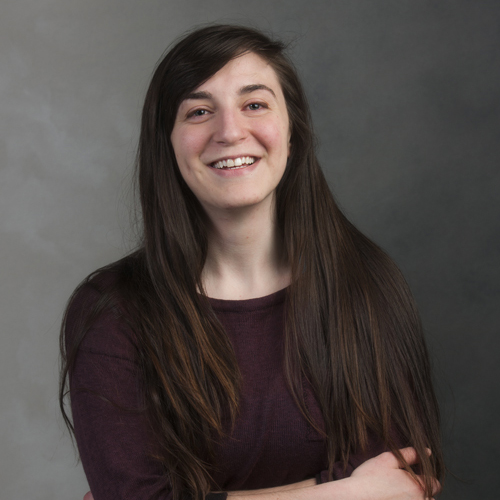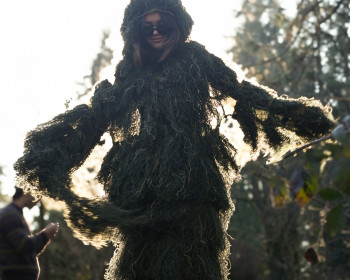Harvard’s Marjorie Garber visits Lewis & Clark
Open gallery

by Erica Terpening-Romeo BA ’14
“So ‘occupy’ became the word of the year in 2011.”
That’s how Marjorie Garber, William R. Kenan, Jr. Professor of English and Environmental Studies at Harvard University, began her lecture on William Shakespeare’s shifting position in popular culture. The event, which was so well attended that the seating in the Gregg Pavilion had to be doubled to accommodate the audience, was humorously titled “Occupy Shakespeare: Shakespeare and/in the Humanities.”
Professor Garber, one of the most well-respected Shakespeare scholars in the United States, visited Lewis & Clark in late September as part of the Phi Beta Kappa visiting-scholars program.
In addition to teaching at Harvard, she has published 17 books and edited 7 collections of essays on a wide variety of topics—from Shakespeare to sexuality to real estate, from a biography of quotation marks to an exploration of the relationships between humans and their dogs. She has also been interviewed on the Charlie Rose show, and was recently featured on the BBC/PBS television series “Shakespeare Uncovered.”
The English department wanted to make the most of Garber’s visit at Lewis & Clark. She began her day guest lecturing on Coriolanus in Professor Lyell Asher’s Shakespeare course, shared a casual lunch with a small group of students, then met with English faculty before whisking off to the Pavilion to address an audience of students and faculty—most from the English, Theatre, and History departments—as well as administrators, staff, and a few members of the community.
Garber’s talk focused on Shakespeare’s reception throughout the centuries, both when he was on the inside (a member of the “1%”) and when he was on the outside (a member of the “99%”) of mainstream literary culture. In recent decades, she argues, Shakespeare has come to reoccupy his original position among the 99%. Whereas during the first half of the 20th century, references to Shakespeare were used as a kind of code for the intellectual elite—a password used to separate the “in” crowd from the out—today Shakespeare has become common property, to the point that pop culture icons like Taylor Swift can name drop from Romeo and Juliet and fans of every age and from nearly every social or cultural background will catch the reference. This “Shakespeare tagging,” as Garber calls it, requires almost no familiarity with the language of the plays and only a passing familiarity with their plots: “Shakespeare’s very name is a brand unto itself.”
Though her talk was anchored in a serious inquiry about culture, appropriation, and access, Garber was not above poking gentle fun at herself and the humanities in general. She sent up the field of digital humanities, for instance, with a slide on Shakespeare’s own preoccupation with occupation through a series of Venn diagrams, each representing a line or phrase of Shakespeare’s in which one thing occupies another.
As an academic community committed to remaining vitally connected to the larger world, Lewis & Clark has a special stake in Garber’s message of inclusion and bridge building. Her main point—that any coverage of Shakespeare is good coverage, from the highest brow to the lowest, from the most traditional to the most radically modern—resonated with her audience in the Pavilion that evening. The final question of the evening came from a professor who expressed concern that such a universalist spirit in the academic world would lead to the “dumbing down” of Shakespeare in the service of holding on to a popular audience.
“The only way to teach anything is to meet people where they are,” Garber responded, “I’m not about defending the humanities; I’m about living them.”
A version of this article originally appeared in Wordsworth, the English department newsletter.
More Newsroom Stories
Public Relations is located in McAfee on the Undergraduate Campus.
MSC: 19
email public@lclark.edu
voice 503-768-7970
Public Relations
Lewis & Clark
615 S. Palatine Hill Road MSC 19
Portland OR 97219

